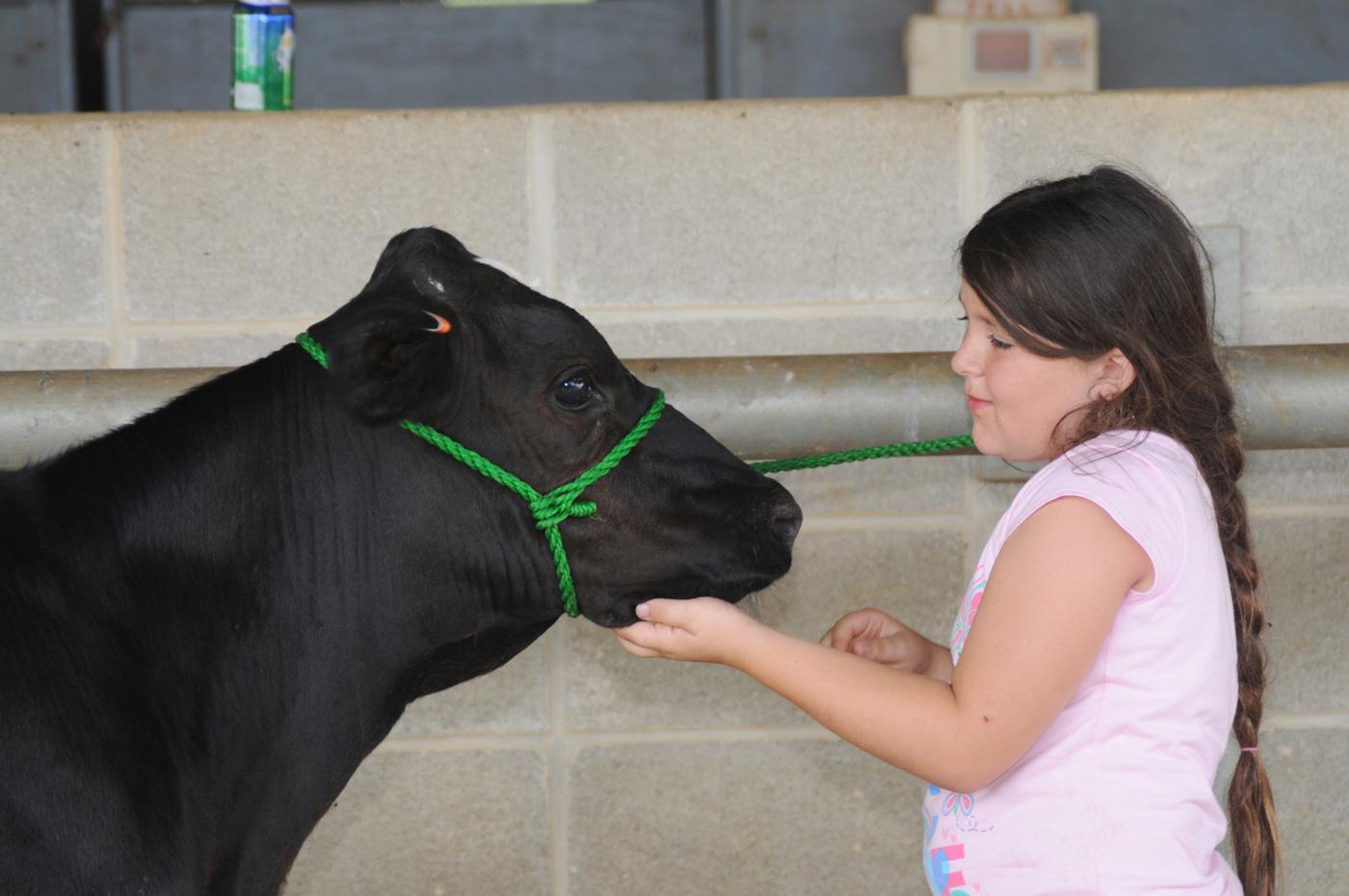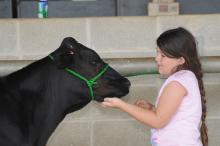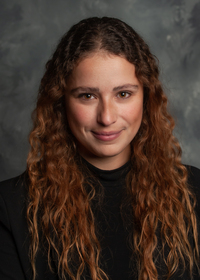Information Possibly Outdated
The information presented on this page was originally released on July 1, 2010. It may not be outdated, but please search our site for more current information. If you plan to quote or reference this information in a publication, please check with the Extension specialist or author before proceeding.
MSU dairy camp helps 4-H'ers learn new skills
By Patti Drapala
MSU Ag Communications
MISSISSIPPI STATE – Mississippi dairy farmers have been good mentors to youth who participate in the 4-H Dairy Cattle Project, but the continuing decline in dairy farms across the state has reduced the number of people who serve as sources of information.
Despite the decline in dairying, many youth continue to enroll in the 4-H dairy project, and Mississippi State University has worked to close the resource gap by reviving a statewide dairy cow camp to help 4-H’ers expand their knowledge and enhance the ability of some to raise and show dairy animals.
The camp covers dairying, animal herd health, dairy breeds and preparation for competitive events, such as the dairy quiz bowl, dairy cattle judging and visual presentations. This is MSU’s third year to host the camp since the mid-1990s.
“Through the years, 4-H members have had the opportunity to participate in several multi-county or regional day camps and other workshops focused on dairy,” said camp coordinator Lamar Adams, dairy specialist with MSU’s Extension Service. “In 2008, several people asked us to revive the 4-H statewide camp.”
Based on requests made in the last two years, the 2010 camp expanded to three days to include the Dixieland All Breeds Dairy Heifer Sale. About 40 participants, including 4-H members, parents, volunteer leaders and agents, attended camp this year, and many of the youth eagerly volunteered to assist at the sale.
“We had the opportunity to lead the heifers into the sale ring for the buyers to look at and then take them back to the barn,” said camper Hannah Foster, 14, of Pontotoc. “That was a lot of fun.”
The event also exposed campers to working backstage at a sale.
“Campers got to help wash, clip and groom the heifers to prepare them for the sale,” Adams said. “Many of them also experienced the excitement of a live auction for the first time in their lives.”
The sale was but one highlight of the camp. Participants learned how to identify the seven major breeds of dairy cattle in the United States and the factors of selecting high quality animals for dairy herds. They also enjoyed hands-on activities that allowed them to finetune showmanship skills and teach the animals to respond to lead and halter commands.
“You need to make sure you know how to handle your Jersey cows,” said Emma Garner, 8, of Houston. “Some will come to you and some won’t. Some are sweet to you and others get a little excited, but I like working with all of them.”
Campers also learned how to keep animals calm and comfortable while being groomed and handled.
“When you wash a cow, you get her body wet, then wet the brush and put soap on it, and scrub the cow with the brush, but not too hard,” said 8-year-old cow camper Emmie Rowlen of Webster County. “You then rinse the animal off with water to completely remove the soap.”
Emmie has shown her older sister Kathrine’s calf, Sweet Dream, in 4-H competition, but she now has her own month-old Jersey calf, a male she named Junior. Junior is too young to bathe, but Emmie said she will know when to start as he gets older.
Campers traveled to MSU’s Bearden Dairy Research Center to visit the Holstein and Jersey herds at the facility.
“Many campers experienced their first visit to an operating dairy farm, and they learned how MSU manages these animals to be among the top dairy production herds in the Southeast,” Adams said.
While many 4-H’ers own one or more cows, the dairy project does not require them to do so. The ones who do not own animals also benefit from attending camp. They can apply what they learn to activities that do not involve live dairy animals.
“The 4-H Dairy Cattle Project and the dairy cow camp help young people learn the values of caring, responsibility, respect, trust, fairness and citizenship,” Adams said. “They expand their circle of friends, learn to get along as a body of dairy enthusiasts and develop leadership skills they can use later in life. Along with that comes an appreciation for the time and effort farmers invest in supplying all of us with nutritious and delicious dairy products.”




